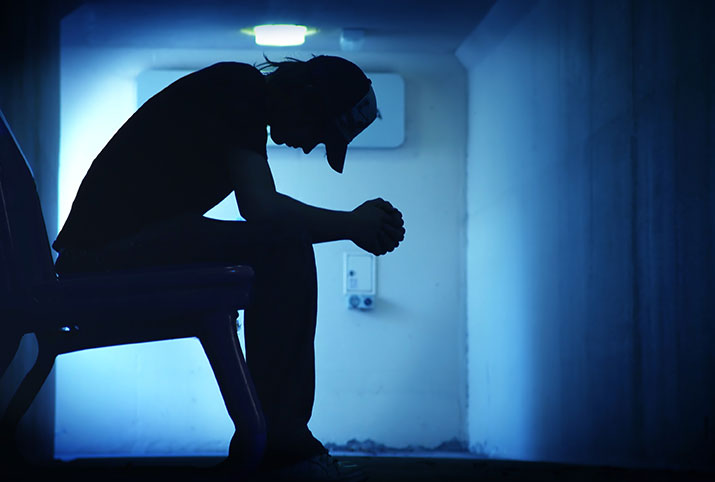Study sheds light on gay, lesbian and bisexual youth suicide

A Delaware Valley University faculty member co-authored a new study on gay, lesbian and bisexual youth suicide.
According the Centers for Disease Control and Prevention lesbian, gay and bisexual youth in grades 7 through 12 are twice as likely to have attempted suicide as their heterosexual classmates. Dr. Audrey Ervin, an associate professor of counseling psychology at Delaware Valley University, has been working with a team of researchers to better understand factors that can contribute to this increased suicide risk.
“We all have a responsibility to play a role in creating safe spaces for sexual minorities,” said Dr. Ervin. “The consequences when we fail to do that can be dire. Adults need to be cognizant of how interpersonal variables impact psychological distress. It’s imperative for parents, teachers, psychologists and friends to play a role in creating safe spaces for everybody. When sexual minority youth harm themselves, it hurts whole families and communities.”
Dr. Ervin recently co-authored research on suicide risk among gay, lesbian and bisexual youth, which was published in the June issue of the Journal of Homosexuality and picked up in an article by the Huffington Post. The study entitled, “Predictors of Sexual Minority Youth’s Reported Suicide Attempts and Mental Health,” included a group of 61 gay, lesbian and bisexual youth from the Mid-South.
The study found that negative feelings the teens had about themselves or, their sexual orientation, played a less important role in suicide risk than their relationships with other people did. Relationships with friends and family were one of the most important predictors of suicide risk.
Teens in the study who lost friends after coming out were were 29 times more likely to report having attempted suicide. Youth who experienced psychological maltreatment from caregivers were 9.5 times more likely to report a suicide attempt.
“The study highlights the importance of creating positive, affirming support systems for sexual minority youth,” said Dr. Ervin.
Little research has examined the experiences of lesbian, gay and bisexual youth in the South and this study provides new insight into their experiences.
“The research has implications for school counselors, community organizations and mental health professionals,” said Dr. Ervin. “Staff and administrators should be sensitive to peer relationships when working with at risk lesbian, gay or bisexual youth. They should also provide workshops or trainings on affirming diverse sexual identities so that youth are less likely to face peer rejection when coming out. Mental health professionals should pay close attention to family and peer dynamics since we know these are important factors. When youth do face rejection from peers, creating an alternative space, such as a student group, where they can find the understanding and connection they lack in other areas of their lives can be helpful.”
Dr. Ervin serves as the academic program director for the University’s graduate counseling psychology program. She is also a licensed psychologist who maintains her own practice, Ervin Counseling and Consulting, LLC in Doylestown, Pennsylvania. She completed a Ph.D. in counseling psychology at the University of Memphis and a postdoctoral fellowship at the University of Delaware. Her work focuses on multiculturalism with a particular emphasis on gender identity, sexual orientation, racial identity and international issues. She has presented her work at numerous national and international conferences and was the national spokesperson for the Association for Women in Psychology. She also serves on the Committee on Multiculturalism for the Pennsylvania Psychological Association. Dr. Ervin is an avid public speaker who presents nationally and internationally on competent multicultural practices in business, organizations and education.